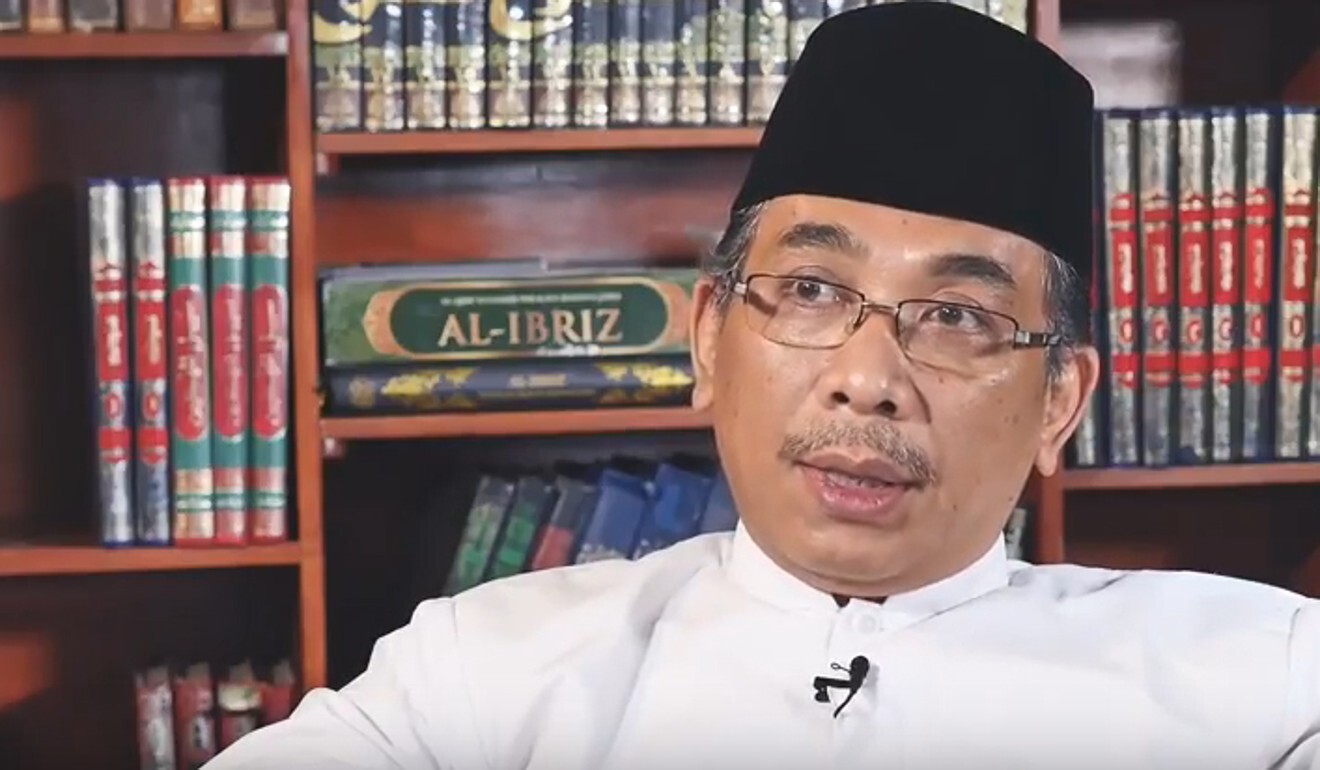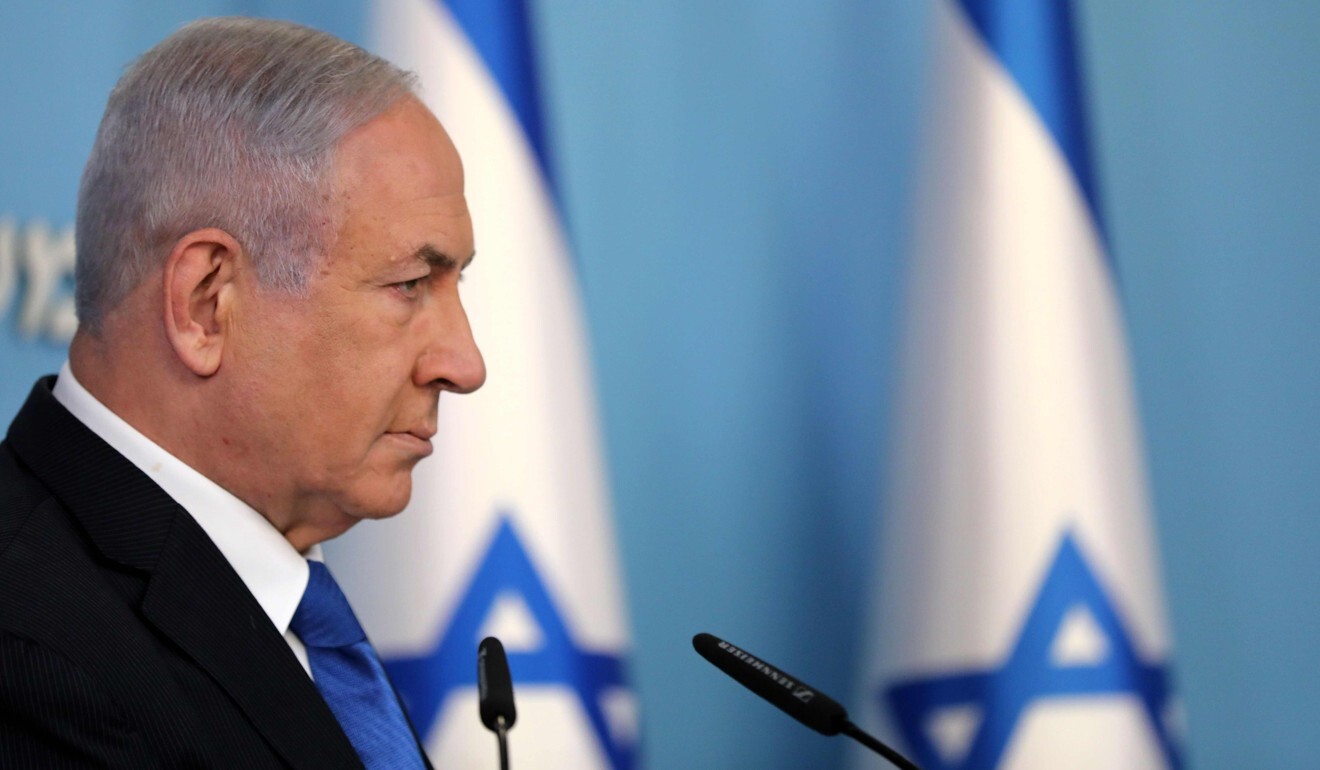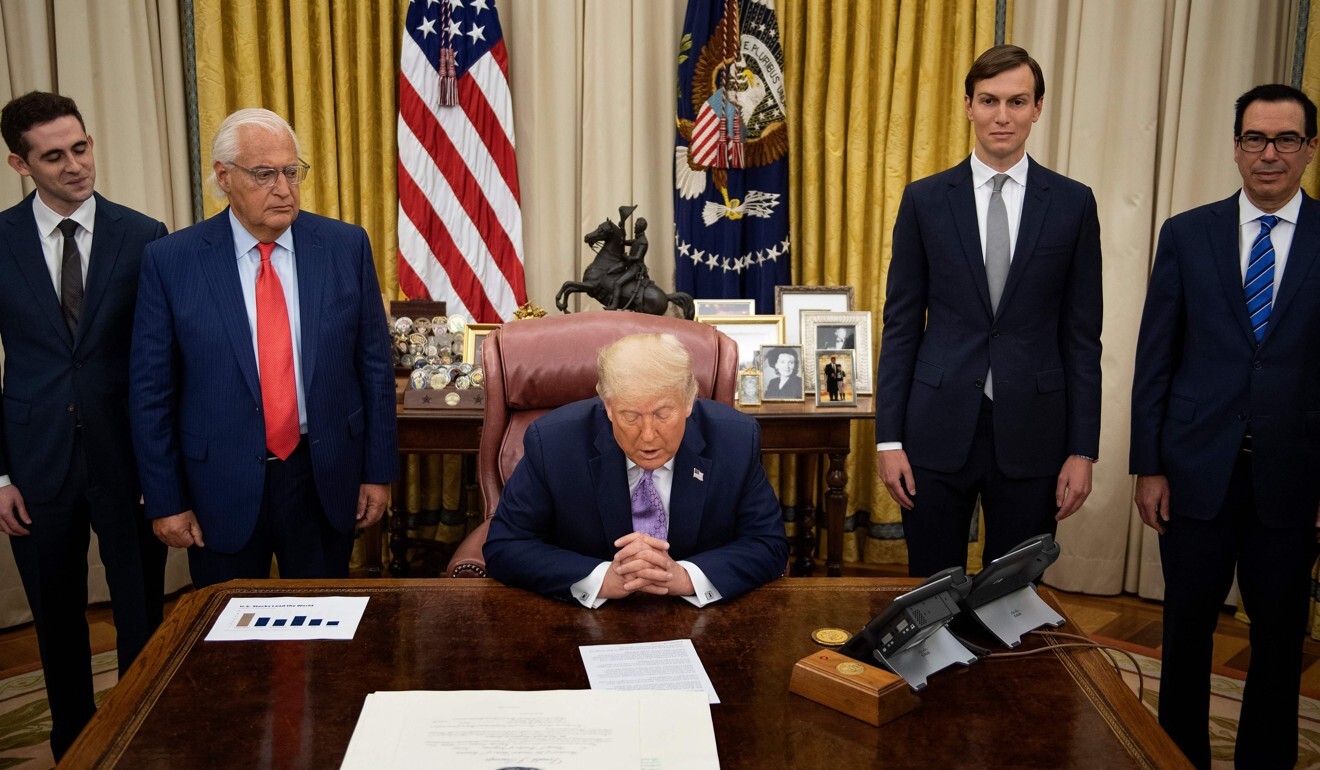
Exclusive | Malaysia’s Mahathir: UAE-Israel deal divides Muslim world into ‘warring factions’
- The two-time prime minister, a long-time defender of the Palestinians, has criticised the US-brokered agreement as a step backwards for peace
- Indonesia’s largest Muslim organisation, Nahdlatul Ulama, has warned the deal could trigger terror attacks there and in the Middle East
In a diplomatic win for Donald Trump, Israel and UAE normalise relations
Mahathir, a long-time defender of the Palestinians, who are locked in a decades-old conflict with Israelis, told This Week in Asia the agreement would “divide the Muslim world into warring factions and in this, the Israelis will add fuel to the fire”.
“They will increase the ability of the contestants to fight each other and there will be no peace even between Muslim countries,” said Mahathir, 95, who had two stints as the premier of the Muslim-majority nation, his most recent one ending earlier this year.
“It bolsters the stand taken by Israel that Palestine belongs to Israel. Of course there will be a reaction from the Palestinians and those who are sympathetic towards the Palestinians. This will mean prolonging the war in the Middle East,” he said.
Neither the Indonesian nor the Malaysian government have officially responded to the UAE-Israel accord.
The agreement saw Israel pledge to suspend its annexation of Palestinian land, although Israeli Prime Minister Benjamin Netanyahu stressed that did not mean it was abandoning plans to annex the Jordan Valley and Jewish settlements across the occupied West Bank.
The Palestinians, Turkey and Iran have decried it as a “betrayal”, while the UAE defended it as an initiative that gave more time for a peace agreement to be reached.
Hamas, the Islamist Palestinian movement that runs the Gaza Strip, is regarded as a militant group by some countries, including the US. It called the deal “a stab in the back of the Palestinian people and a desperate attempt to negatively affect the resistance path aiming to defeat the Israeli occupation and restore Palestinian rights”.
In Indonesia, Nahdlatul Ulama – which claims more than 60 million followers – warned that Islamic radical groups “clearly hate this agreement”.
Iran and Turkey slam Israel-UAE deal as ‘strategic stupidity’ and ‘betrayal’ of Palestinians
“[These groups] may be provoked to launch terror attacks in Muslim countries, especially the Middle East,” said secretary general Yahya Staquf, a Muslim cleric.
In March 1979, Egypt’s then president Anwar Sadat signed a peace treaty with Israel after fighting four wars with its neighbour, with terms including the normalisation of relations and the full withdrawal of Israeli troops and civilians from the Sinai Peninsula, which had been captured from Egypt in 1967.
In October 1981, Islamic extremists, angered by the treaty, assassinated Sadat at a military victory parade in Cairo.
Staquf said the UAE appeared to be “sufficiently protected” from terror attacks, more so if it had the security backing of the US and Israel.

“Indonesia should always be on the alert because such groups are still here,” said the Muslim cleric and scholar. An advocate of interfaith coexistence, he visited Israel in 2018 to meet with religious leaders there, drawing heavy criticism at home for the trip.
Staquf said the Indonesian government held the view that “the phenomenon of the Israeli state is a phenomenon of colonialism”, and the majority of the people, whether they followed Islam or otherwise, shared the same view.
More than 90 per cent of Indonesia’s population of 270 million identifies as Muslim, making it the world’s most populous Muslim nation.
TIES WITH ASEAN
Retired Singaporean diplomat Bilahari Kausikan said the city state would likely welcome the “farsighted decision” by the UAE, which becomes the first Gulf state to normalise ties with Israel – one of Singapore’s oldest and most important military partners.
Following Singapore’s split from Malaysia in 1965, Israel helped it build up its defence forces, a role larger powers including India and Egypt chose not to play. The presence of Israelis in Singapore was largely hidden from the public, with the island nation referring to the advisers as “Mexicans” to avoid the anger of its Muslim-majority neighbours.
Bilahari – who was the Singaporean Ministry of Foreign Affairs’ most senior civil servant before he retired – pointed out that Muslim nations such as Egypt and Jordan had maintained diplomatic relations with Israel for some time.
Kamala Harris assails Trump in first appearance as Joe Biden’s running mate
“In fact, most of the Gulf states have been quietly developing unofficial relations with Israel. Since Israel is now accepted by much of the Middle East, why should Southeast Asia not accept Israel?”
He said he hoped the UAE’s recognition of Israel would lead the three Asean members who did not have formal ties with Israel to reconsider their decision, while acknowledging they would “make their own sovereign decisions”.
“China, the EU or Russia could not have brokered this deal between Israel and the UAE,” he said. “Only the US could do it.”

John Langmore, professorial fellow from the University of Melbourne’s school of social and political sciences, was less convinced.
“It doesn’t sound like a deal at all since both sides are saying that it isn’t settled,” he said. “Israel is saying that the settlements will go ahead anyway; and the Emirates that the negotiations aren’t completed. It sounds more like spin in Trump’s election campaign than a decision.”
Mustafa Izzuddin, senior international affairs analyst at management consultancy firm Solaris Strategies Singapore, said Malaysia and Indonesia looked at the Palestinian cause as one of “Muslim brotherhood”.
“They will find this deal makes it more difficult now for the Palestinians to have their own state,” he said, adding that Putrajaya and Jakarta would have to balance their economic ties to the UAE with their support for the Palestinian cause.

He added that the UAE’s link to the US was important in protecting it geopolitically, “particularly with Iran in the neighbourhood”.
“The UAE is one of the smaller countries in the Middle East; they are geopolitically vulnerable so they have to have strong alliances,” he said, adding that Abu Dhabi also wanted the technological benefits from joint ventures with Israeli companies.
In Japan, the government welcomed the UAE-Israel agreement as the first step towards easing tensions and stabilising the region.
“The Middle East peace issue should be resolved by negotiations between parties concerned and not through violence or unilateral acts,” said press secretary Tomoyuki Yoshida, who added that Tokyo appreciated Washington’s efforts in brokering the deal.
He reiterated Japan’s stance “to continue to support a two-state solution whereby Israel and a future independent Palestinian state live side by side in peace and security”.
Additional reporting by Kok Xinghui


